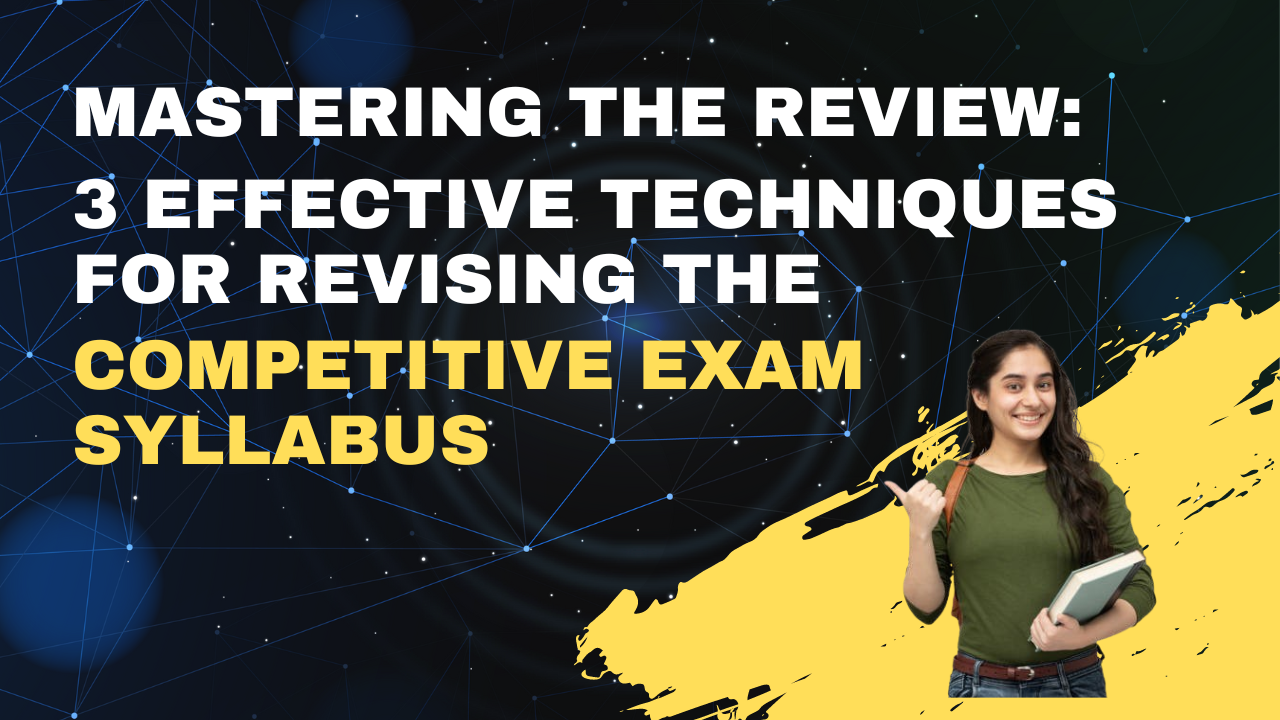Mastering the Review: 3 Effective Techniques for Revising the Competitive Exam Syllabus
When preparing for competitive exams, efficient revision is key to solidifying your understanding and ensuring that vast amounts of information are readily retrievable when needed. With the right techniques, you can maximize your revision effectiveness, turning a daunting syllabus into manageable, mastered segments. Here are three powerful strategies to revolutionize your revision process.
-
Active Recall: The Power of Self-Testing
Active recall is a scientifically backed, highly effective revision technique that involves actively stimulating your memory during the learning process. Instead of passively reading through notes, you test yourself on the material, forcing your brain to retrieve the information actively.
Implementing Active Recall:
Flashcards: Create flashcards with questions on one side and answers on the other. Regularly test yourself, focusing on areas where your recall is weaker.
Practice Questions: Use past exam papers or create your own questions based on the syllabus. Simulate exam conditions to test your ability to recall and apply information under pressure.
Teaching Others: Try to teach the material to someone else. Explaining concepts aloud is a form of active recall and can highlight areas that need deeper revision.
-
Spaced Repetition: Timing Your Review for Maximum Retention
Spaced repetition leverages the psychological spacing effect, suggesting that information is more easily remembered if review sessions are spaced out over time rather than crammed in a short period. This method helps in moving information from short-term to long-term memory, making it ideal for long-term retention of competitive exam syllabi.
Applying Spaced Repetition:
Schedule Your Revision: Plan your revision sessions so that you review the material at increasing intervals. For example, review a topic one day after learning it, then two days later, a week later, and so on.
Use Spaced Repetition Software: Apps like Anki or Quizlet can help manage your revision schedule, reminding you when it’s time to review specific topics or flashcards.
-
Mind Mapping: Visualizing Connections
Mind mapping is a creative and effective revision technique that involves drawing diagrams to represent connections between different parts of a topic. This method is particularly useful for visual learners and can help in understanding complex relationships and hierarchies within the syllabus.
Creating Effective Mind Maps:
Start with the Core Concept: Place the main idea or topic in the center of your map and branch out to subtopics, key facts, and details.
Use Colors and Images: Make your mind map visually engaging by using different colors for various themes or topics and adding images or symbols to reinforce memory.
Link Ideas: Draw connections between different parts of the map to illustrate how concepts are interrelated. This can help in understanding the material more holistically and remembering how different topics fit together.

